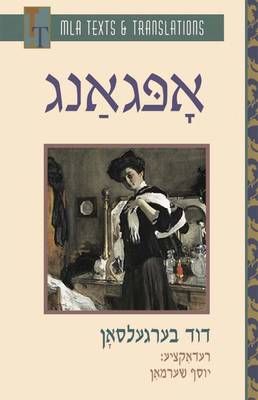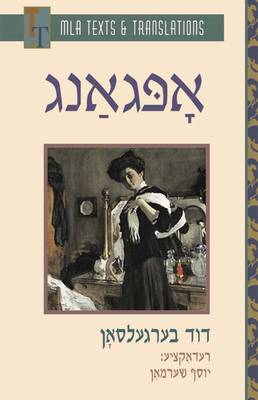
- Retrait gratuit dans votre magasin Club
- 7.000.000 titres dans notre catalogue
- Payer en toute sécurité
- Toujours un magasin près de chez vous
- Retrait gratuit dans votre magasin Club
- 7.000.0000 titres dans notre catalogue
- Payer en toute sécurité
- Toujours un magasin près de chez vous
Description
Opgang, a novella published in 1920, is set against the background of Jewish life in Russia and Ukraine during the turbulent period leading up to the October Revolution of 1917, a period characterized by the rise of secularism, the rejection of old traditions, the alienation of intellectuals, and the attempt of different generations to find a place for themselves inside and out of the shtetl.
The novella centers on the mystery of the suicide of a young pharmacist in Rakitne, a provincial town. Did his death have anything to do with the two women who loved him? Was it the result of despair or an act of protest? And if protest, against what? His old friend seeks answers but finds none. The prose is immaculately crafted, the narrative indirect, and the mood poignant, dark, and disquieting.
Spécifications
Parties prenantes
- Auteur(s) :
- Editeur:
Contenu
- Nombre de pages :
- 279
- Collection :
Caractéristiques
- EAN:
- 9780873527873
- Date de parution :
- 01-01-99
- Format:
- Livre broché
- Format numérique:
- Trade paperback (VS)
- Dimensions :
- 142 mm x 216 mm
- Poids :
- 340 g

Les avis
Nous publions uniquement les avis qui respectent les conditions requises. Consultez nos conditions pour les avis.






